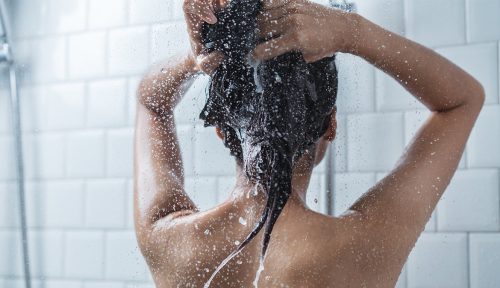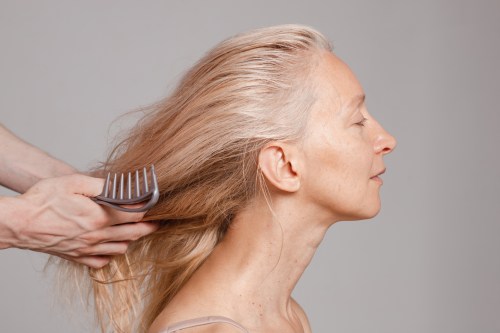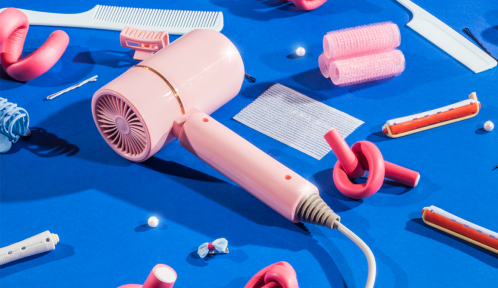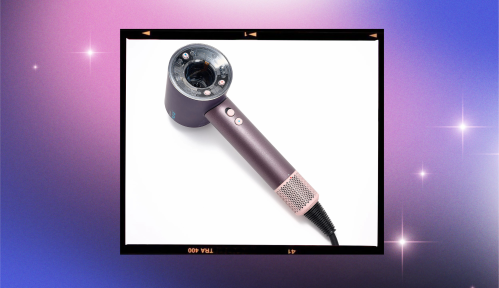Our editors independently select these products. Making a purchase through our links may earn Well+Good a commission
This Is How Often You Should Be Shampooing Thinning Hair, According to a Dermatologist
Wondering how often should thinning hair be washed? A dermatologist says often enough to keep your scalp healthy learn how to do that here.

If your hair is thinning, you’ve probably noticed that you’ll lose a few strands every time you shampoo. And if you’re wondering how often should thinning hair be washed, you might think that less is more. However, Ronda Farah, MD, a board-certified dermatologist based in Minneapolis, Minnesota, says that’s actually not the case.
Experts in This Article
board-certified dermatologist based in Minneapolis, Minnesota
“Your hair is set for the day on what it’s going to shed. If you don’t shampoo, it’ll come off in your ponytail holder, on the floor, on your coat, or at work. You cannot stop it by not shampooing,” says Dr. Farah, who is an assistant professor of dermatology at the University of Minnesota. “You need the shampoo to keep your hair and your scalp clean. If you shampoo less, will that help stop a hair thinning disease? No. And I actually am concerned you could make it worse.”
She explains that limiting shampooing can increase redness, inflammation, and scaling, and make your scalp less healthy overall. “So not only will you have your hair loss disease, but you could also have now dermatitis and inflammation and bacteria and sweat and oil on the scalp, driving things even more,” she adds.
Dr. Farah says that more than 50 percent of Americans are experiencing hair loss at any one time. Most of those people deal with androgenetic alopecia, a gradual form of hair loss that takes place over years as you age. But there are also other reasons for hair loss, like stress-induced shedding and autoimmune hair diseases. In most of these cases, one of the best things you can do for your hair (aside from speaking to your dermatologist) is to wash it often enough to keep your scalp happy and healthy.
“If you have redness and flaking and itch, sometimes that’s a sign you need to wash your hair more often,” says Dr. Farah, adding that the exact frequency is usually dependent on an individual’s hair needs. “Maybe for some people it’s, ‘if I do it three times a week, I have no itching, redness, flaking, or scale. And my hair’s not breaking. That’s perfect.” She notes that it’s a balance. Some people might need to wash their hair daily to keep their scalp healthy. However, those with super coarse hair might not be able to wash their hair more than once every 10 days. You have to listen to your scalp.
When your hair is thinning, Dr. Farah says you only want to use shampoo on your scalp.
“Typically, we would want the patient to focus shampoo on the scalp, massage into the scalp, and avoid it on the hair follicle [or strand],” she says. “You don’t want to get very much onto the hair follicle because it can cause breakage and dryness.” However, when it comes time to condition, the opposite is true. “You want that conditioner to re-nourish and repair and seal that hair follicle to prevent thinning,” she says, which means you should concentrate your conditioner application on your lengths instead of your roots.
“If the hair shedding isn’t recovering by itself, then seeking the care of a primary care doctor or board-certified dermatologist is really important,” says Dr. Farah. “If you’re not getting the answers that you want, get a second opinion. There are things to test for hair. We test our thyroid, our vitamin levels. We look at the patient’s medication list, their surgeries, if they’ve had COVID-19—all of those things can really play into it.”
The best product you can use to manage hair loss from androgenetic alopecia is to use a product with minoxidil ($20 to $30), like Rogaine. Dr. Farah says not to worry too much about special shampoos.
“Shampoos typically don’t do a great job of growing hair…Shampoos are detergents, [which means] they’re cleansers to clean hair and dirt,” says Dr. Farah, “Because of this, I typically will have people pick a product that’s labeled for their hair type. For example, I have coarse, curly hair, so I’ll pick a product meant for that hair type.”
So as you navigate your hair thinning journey, make sure you’re keeping your scalp clean. And if things are feeling beyond your control, don’t hesitate to reach out to a doctor.
A dermatologist shares more tips about how to manage hair loss:
Oh hi! You look like someone who loves free workouts, discounts for cutting-edge wellness brands, and exclusive Well+Good content. Sign up for Well+, our online community of wellness insiders, and unlock your rewards instantly.
Sign Up for Our Daily Newsletter
Get all the latest in wellness, trends, food, fitness, beauty, and more delivered right to your inbox.
Got it, you've been added to our email list.










